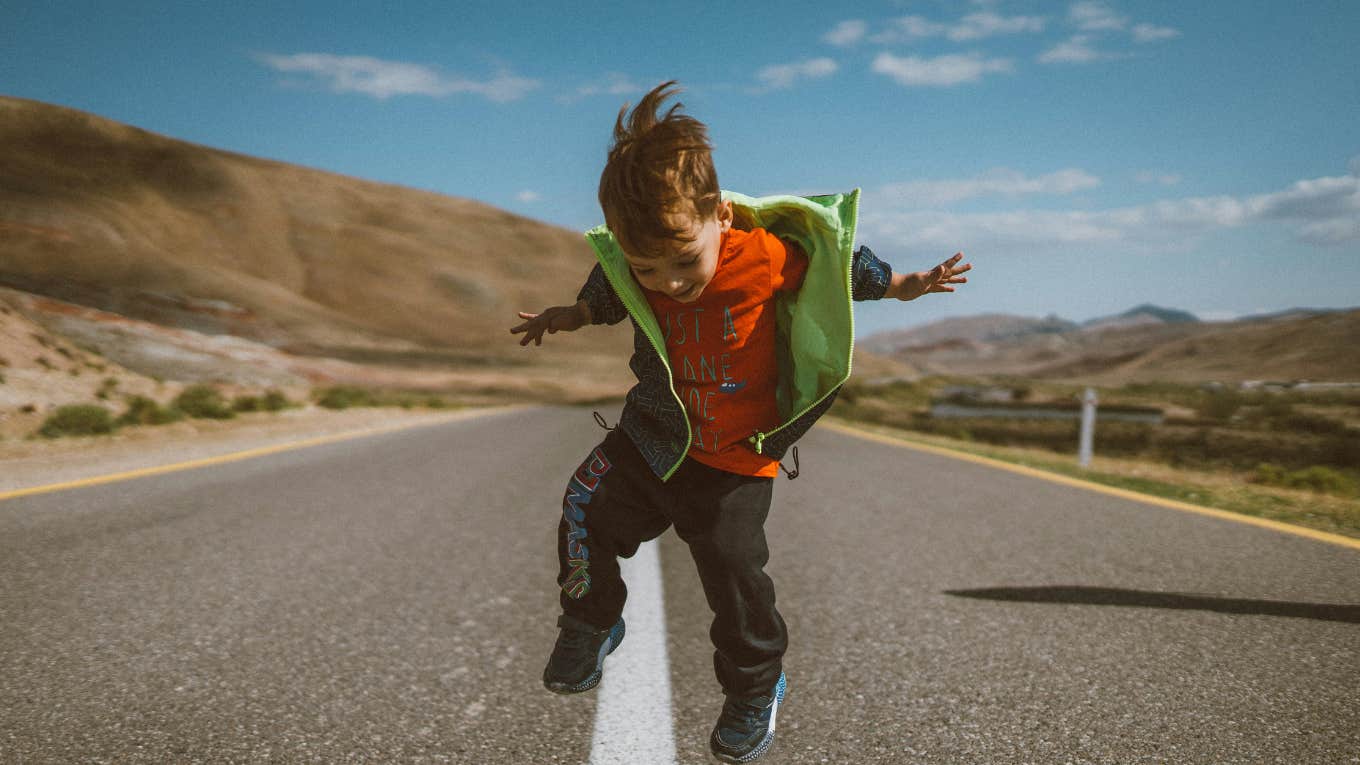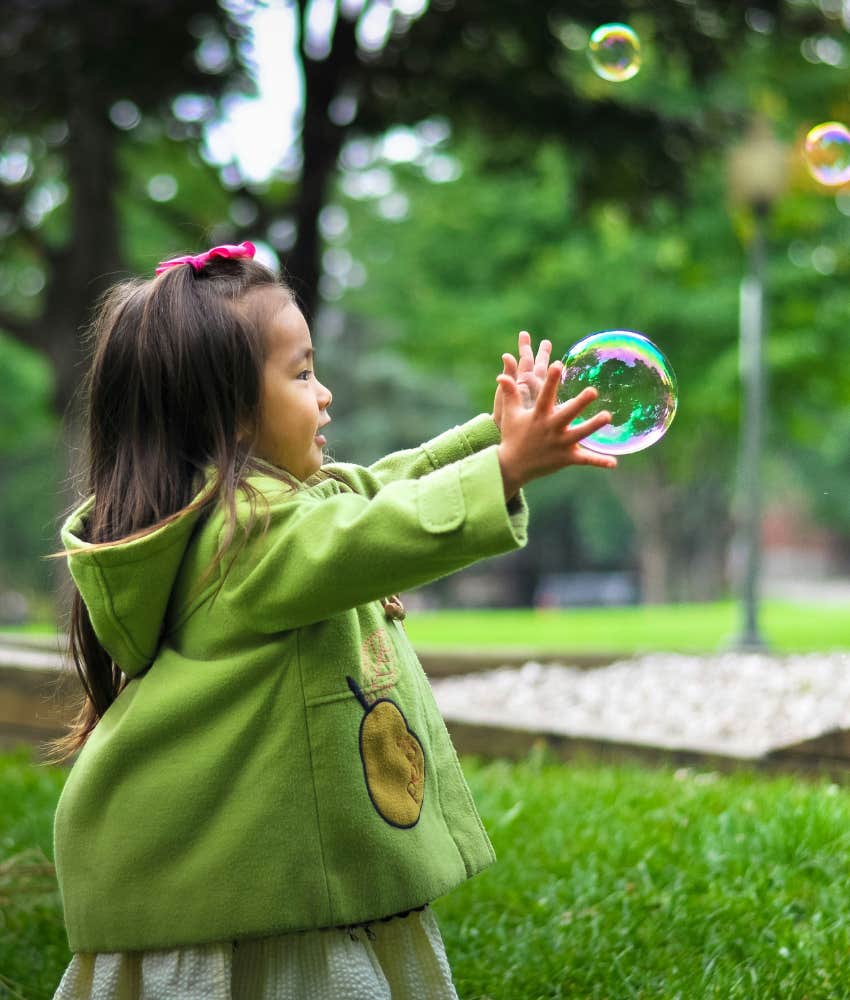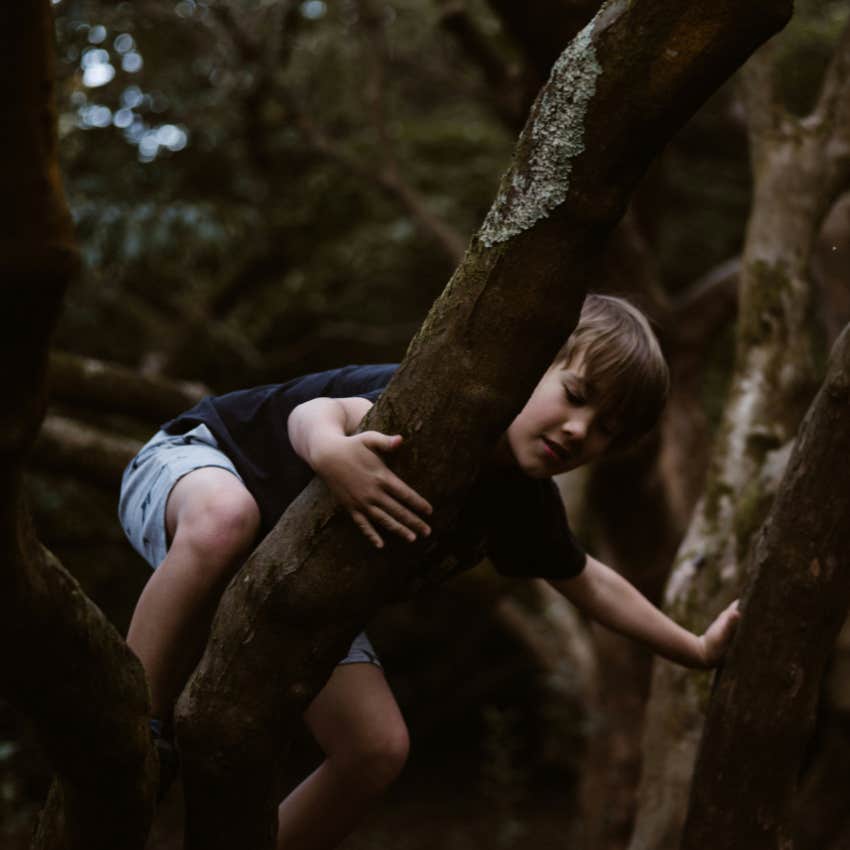5 Reasons Child Health Experts Want Parents To Stop Hovering Over Their Kids All The Time
Independence is good for everyone.
 Alvin Mahmudov / Unsplash
Alvin Mahmudov / Unsplash Throughout time, parenting styles have been affected by cultural attitudes, social expectations, and political trends. The current state of American parenting isn’t immune to those influences.
The prevalence of social media and the window it provides into other people’s family lives has played a huge role in how parents see themselves and how they see other parents.
"Helicopter parenting" is by no means a new term. As our outer world grows more unstable, it seems that overparenting has become a norm, one that isn’t actually benefiting kids’ development.
Here are 5 reasons child health experts want parents to stop hovering over their kids
1. Solving problems without help sharpens kids’ executive function
Mariana Brussoni, a developmental psychologist and director of the Human Early Learning Partnership, explained to The Atlantic that when parents hover, kids aren’t able to establish important skills that they’ll need later in life.
 Photo: Leo Rivas / Unsplash
Photo: Leo Rivas / Unsplash
Overprotected kids don’t learn how to solve problems or resolve conflicts on their own. Yet when they’re given space to do so, kids blossom.
Brussoni also noted that being put in a position where they have to figure things out independently helps kids develop their executive function.
2. Independence promotes social-emotional learning
When kids are left on their own to make connections with other kids, they’re doing more than making friends to play with. They’re also tending to an essential part of being a fully realized person: growing their emotional intelligence.
All too often, a parent’s instinct is to swoop in when things get difficult for their kids, which is an entirely normal instinct. Parents want to protect their children from harm. Yet providing space for them to work certain things out on their own is hugely valuable because it teaches kids to trust themselves.
3. Being on their own boosts confidence and builds resilience
Simple solo acts, like walking the dog around the block, show kids that they can navigate new challenges. Conquering a task they’ve never done before teaches them that they’re strong and capable.
4. Time alone is good for kids’ mental health
Kids aren’t immune to mental health struggles, by any means. It makes sense that they grapple with issues like separation anxiety and fear of new things. The unknown is scary and kids are constantly learning how to exist as part of a larger world they haven’t fully experienced yet.
But shielding kids from the hard parts of life does them a disservice, keeping them stuck in their anxiety instead of showing them that they can tackle it.
The Atlantic cited a 2021 research paper, positing that taking part in adventurous play reduces childhood anxiety.
Activities like climbing trees, riding bikes down hills, or jumping off the diving board at the pool are all beneficial for kids, because of their inherent risk factors. During this particular kind of play, kids experience heightened excitement and elevated adrenaline levels.
 Photo: Annie Spratt / Unsplash
Photo: Annie Spratt / Unsplash
The study also maintains that adventurous play helps contain kids’ anxiety, as it lets kids see that they can do things even when they’re scared, decreasing their intolerance of uncertainty.
5. They learn to cope with big emotions
Doing new, hard things opens up an array of emotions, both positive and negative. Maybe your kid tried something that didn’t go as they planned and the subsequent disappointment they feel weighs heavily on both them and you.
In letting them feel all their feelings, you end up teaching your kid a hugely valuable lesson: We all feel things deeply and it’s okay to sit with those feelings.
Cultural expectations, especially around hyper-focused parenting styles, won’t change quickly.
In a world of hypervigilance, parents aren’t wrong to fear the litany of negative repercussions they might experience from giving their kids more independence. Their kids might feel discomfort; other parents might judge their choices.
There’s no clear-cut, easy answer to counter a generational reliance on over-involved parenting, which could be seen as a direct response to the more free-range parenting styles of the past.
Kids deserve a chance to make their own way in the world, no matter how scary that seems.
Alexandra Blogier is a writer on YourTango's news and entertainment team. She covers parenting, pop culture, and all things to do with the entertainment industry.

